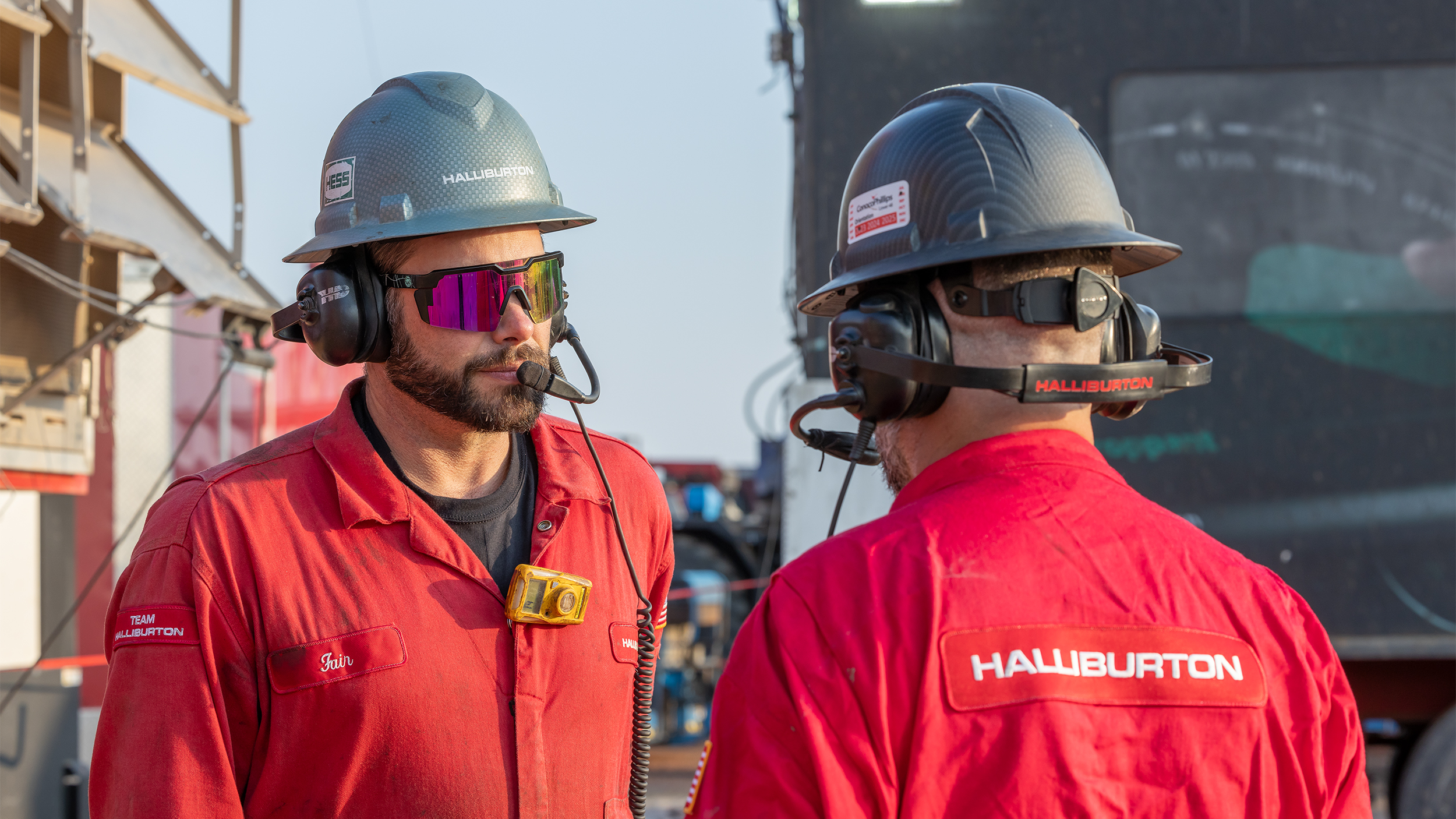 Search
Search
 Search
Search

We prioritize the safety of our employees and contractors with our Journey to ZERO, a set of tried, tested, long-term safety programs and processes. Journey to ZERO includes Halliburton Critical Focus Areas (CFAs), Life Rules, Stop Work Authority (SWA), Management of Change, Significant Incident Review, and Tiered Assurance.
In 2024, the operational discipline of our Halliburton Management System (HMS) and our focus on execution enabled us to outperform our industry group HSE indicators, which are highlighted in Sustainability Highlights and reflect record safety and service quality (SQ) performance.
Learn more on the Health, Safety, Environment and Service Quality page of our website.
Chapters:
Health and Safety
The Journey to ZERO approach to safety and service quality expresses our commitment to our employees, customers, and communities. It demonstrates that we prioritize high standards, embrace challenges, and do not compromise execution.
In alignment with our HSE policy, our Journey to ZERO is owned by everyone at Halliburton, and is led by a senior-level team focused on executing improvements to individual safety, process safety, and environmental performance as we deliver our services. The HSE and Sustainable Development Executive Committee oversees HSE and SD matters, including annual strategies, HSE statistics, and the HSE audit program, and is accountable to the Board of Directors’ HSE Committee. The chief HSE officer chairs the HSE Committee.
Specific Journey to ZERO focus areas shift each year, but the guiding principles remain consistent:
Our 2024 Journey to ZERO efforts included our continued focus on risk management, HSE and SQ culture, and environmental sustainability. We tracked the leadership visits completed each month and focused on fostering quality engagement with critical leadership roles during these visits. We also tracked progress on our GHG emissions, waste, and water activity-based reduction efforts, highlighted in the Environmental section of this report. Halliburton completed 100% of our 2024 Journey to ZERO objectives.
Our 2024 risk-management efforts included a continued focus on Halliburton's in-person 5 Checks to Go and Risk Management Execution training. The regional trainers and subject matter experts we developed in 2023 provided local support and enabled us to expand training to 2,500 additional employees.
Our Service Quality (SQ) minimums are how we work and manage risk. In 2024, we placed additional focus on sharpening the execution of SQ minimums and critical verifications at our job sites before work begins. We embed the International Association of Oil and Gas Producers (IOGP) industry standard personal safety Life Rules, our process safety Critical Focus Areas, and our 5 Checks to Go within these workflows to support safe and efficient service delivery.
Halliburton's Stop Work Authority (SWA) remains a risk-management practice of critical importance. Our SWA program authorizes all employees and contractors to stop a task if they observe unsafe actions or conditions, or if they have concerns about the controls over an HSE or SQ risk. In 2024, employee engagement in SWA remained strong.
Leadership visits focus on engagement with frontline employees to ensure our service quality minimum processes work as intended. Leaders review the execution of critical verification activities and gather process improvement feedback.
Our focus on leadership visits reinforced desired behaviors, such as the completion of 5 Checks to Go before work begins, and helped deliver our year-over-year improvement in total recordable incident rate and lost-time incident rate.
HMS plays a central role in putting our Journey to ZERO in action. The standards and work methods that form HMS define how we work and enable us to address potential risks inherent in our businesses. HMS incorporates major management system standards, including those for quality management (ISO 9001), environmental management (ISO 14001), and health and safety management (ISO 45001). The system also meets and exceeds the requirements of the industry-specific API standards for manufacturing (API Q1), providing services in the oil and gas production sector (API Q2), and the API RP 75 standard for offshore safety and environmental management.
In addition to the global verification of HMS through our internal tiered-assurance program, Halliburton has numerous locations externally certified to API Q1, API Q2, ISO 9001, ISO 14001, and ISO 45001. Halliburton leads the industry with 33 API Q2-certified facilities located in 13 countries.
Countries with API Q1-certified facilities in 2024
API Q1-certified facilities in 2024
Countries with API Q2-certified facilities in 2024
API Q2-certified facilities in 2024
ISO 45001 certified facilities
Sustainability means serving our customers, employees, stakeholders, and communities in an environmentally, socially, and ethically responsible way.
VIEW OVERVIEWGood corporate governance builds trust with our shareholders, customers, and employees.
Globally, oil and gas remain critical sources of energy and will play essential roles in the world's pursuit of a lower-carbon future.
VIEW ENVIRONMENTAL